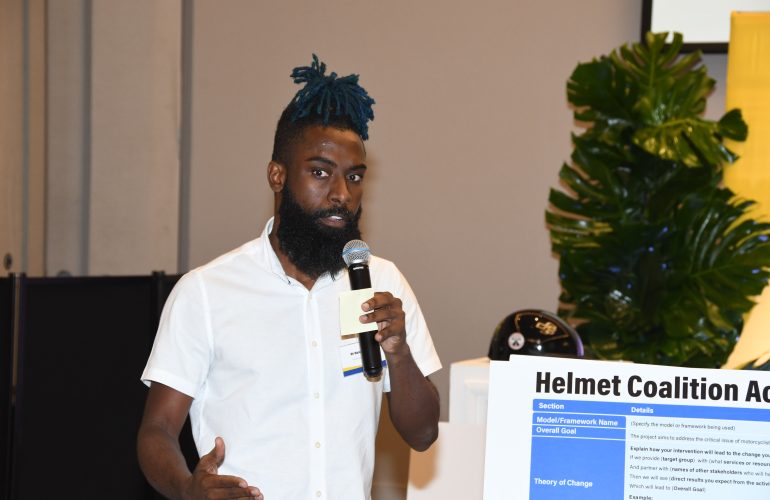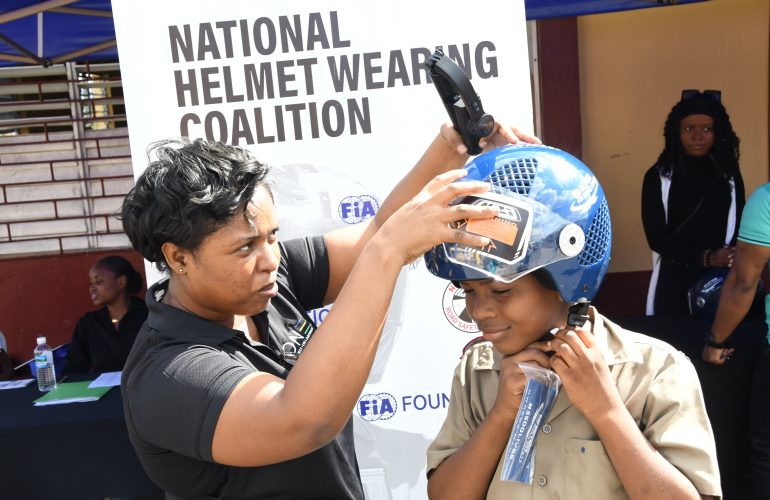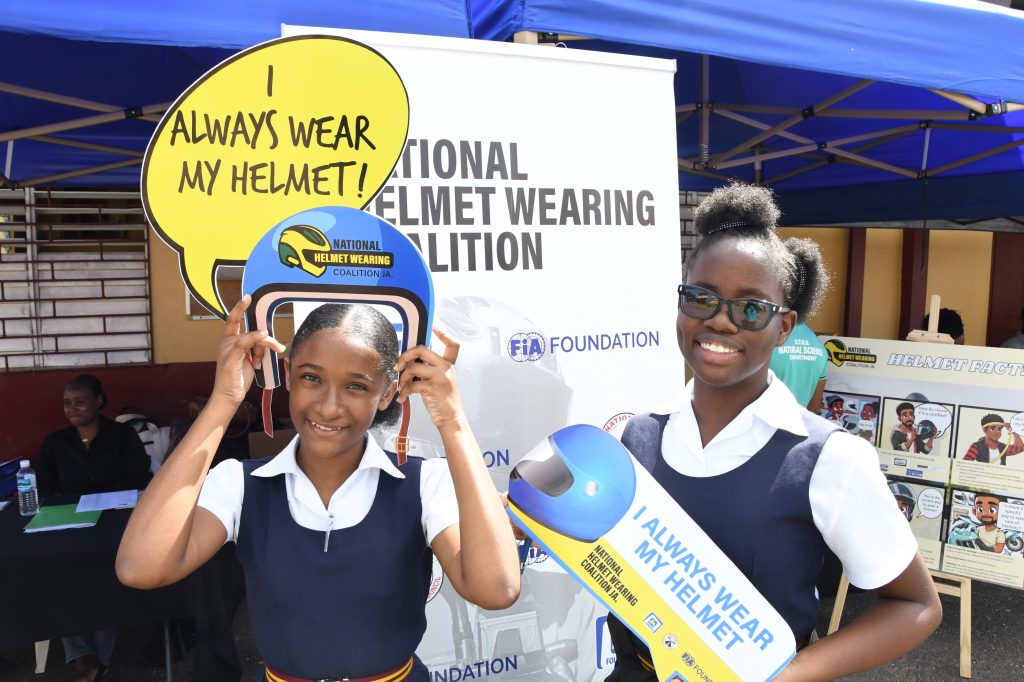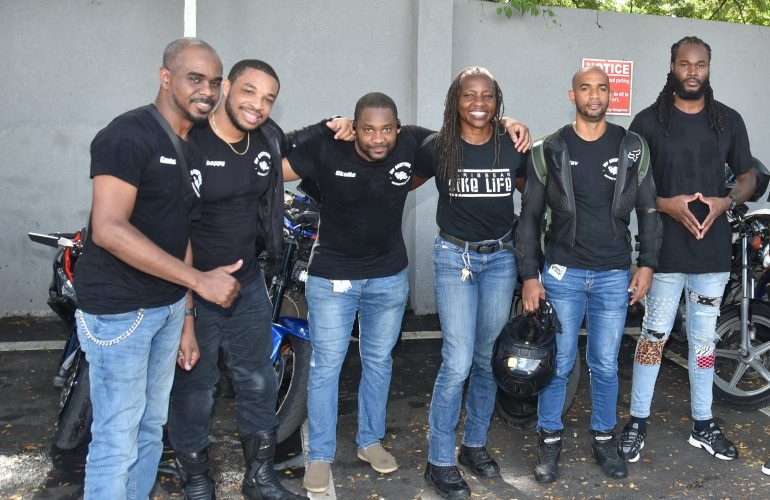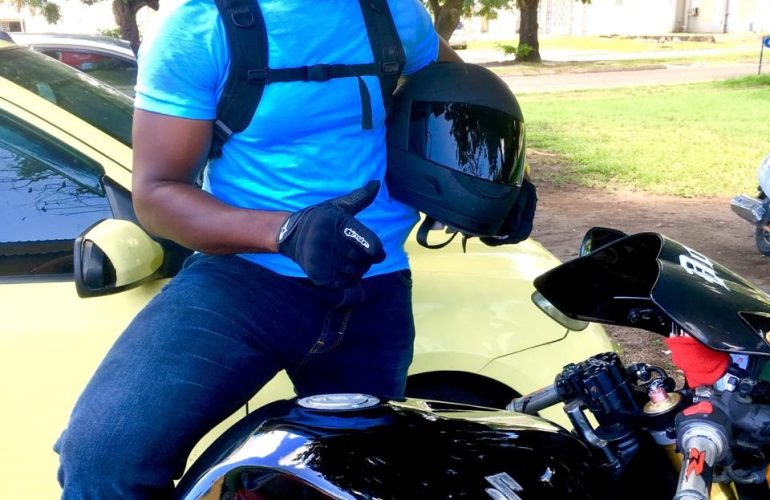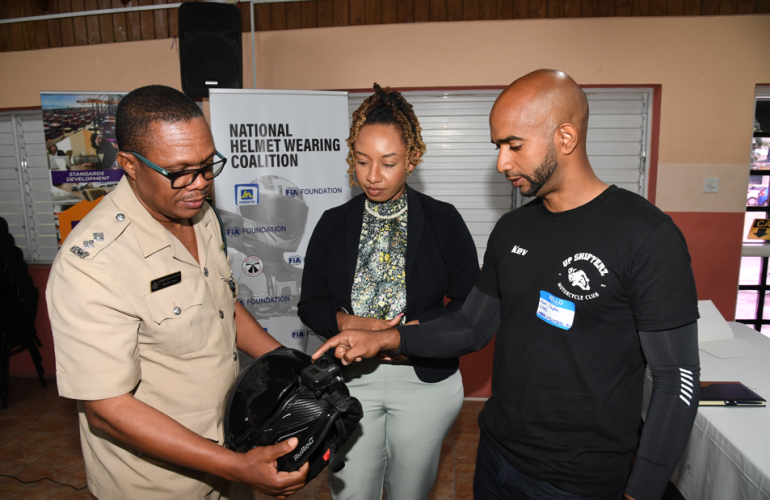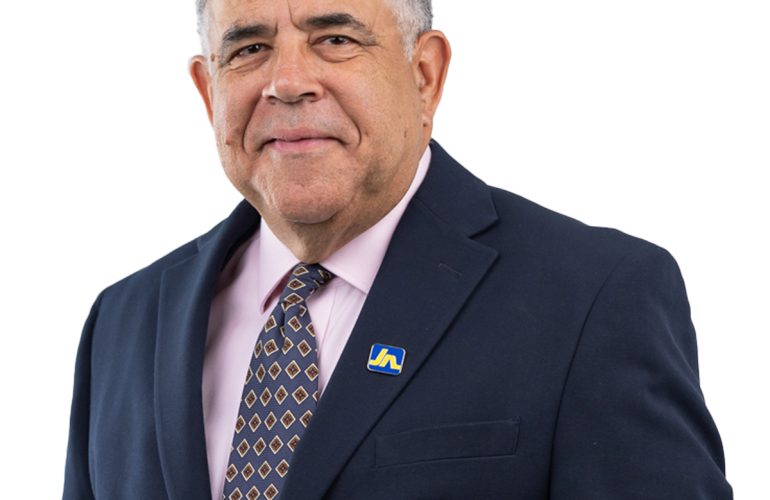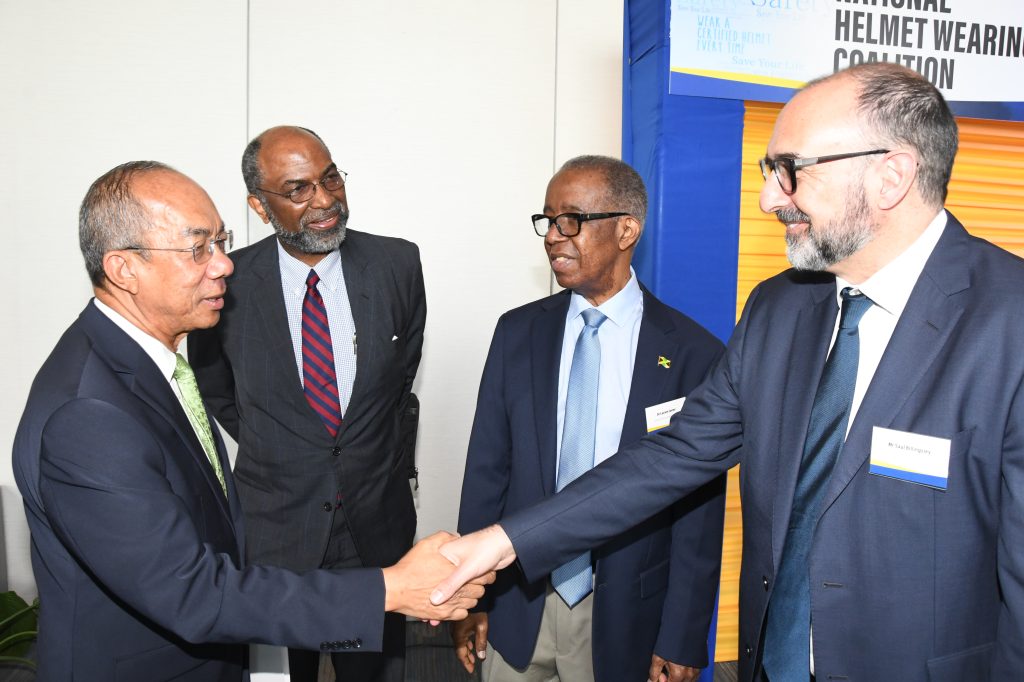Grief to Advocacy: Maleek Powell’s Mission to Save Lives on Jamaica’s Roads
Photo Caption: Maleek Powell, entrepreneur and member of the National Helmet Wearing Coalition addressing a National Helmet Wearing Coalition event, recently.
In the stillness of grief, Maleek Powell found a voice that would not stay silent. The entrepreneur, content creator, and road safety advocate channelled the devastating loss of his sister-in-law, Catherine Hyman, into a mission to prevent others from experiencing the heartache his family endured.
Ms Hyman, a beloved phlebotomist, died tragically in August 2019 at the age of 51 in a crash caused by reckless driving in the parish of St. Catherine. She was travelling to work from Spanish Town to Portmore at the time. Her death was a stark reminder of the dangers that plague Jamaican roads.
A Tragic Loss That Sparked Action
“I woke up to countless missed calls, and I just knew something was wrong,” Mr Powell recalled. “By the time I got through to my family, I was told Catherine was gone. The driver’s reckless decision to overtake a truck on a corner cost two lives that morning.”
Powell’s grief deepened when graphic videos of the crash circulated online. “I watched my sister-in-law take her last breath,” he shared. “It was devastating.”
You hear about these crashes all the time, but it doesn’t hit home until it’s your family. Catherine’s death was completely avoidable. These behaviours make no sense.”
In the wake of her loss, Mr Powell turned to social media to vent his sorrow and frustration. “For almost two weeks, I spoke online every day,” he said. “I cried, I pleaded, and I begged for change. People started listening, and it made me realise I had a role to play in advocating for safer roads.”
Mr Powell credits Catherine for shaping the person he has become. “She believed in us, in our dreams, even the untraditional ones,” he said. “She was a forward thinker who encouraged me to pursue my passions, even when they seemed out of reach.”
A Voice for Safer Roads
To honour her memory, Mr Powell committed to using his platform to promote road safety. He joined the National Helmet Wearing Coalition, a group dedicated to increasing helmet use and compliance with Jamaica’s Road Traffic Act. “Every opportunity I get to advocate, I take it,” he said. “If I can prevent even one family from going through what we did, I’ve honoured her memory.”
Mr Powell’s advocacy extends beyond helmets. He calls for systemic changes in policy, infrastructure, and enforcement. “The infrastructure to save lives is often missing, and enforcement feels punitive rather than educational,” he explained. “We need to show people why these laws exist, to save lives, not punish.”
He believes Jamaica’s culture of rule-breaking contributes to the crisis. “We need to rediscover the value of life,” he said. “Thrill-seeking and recklessness shouldn’t take precedence over safety. It’s about preserving lives, not stifling freedom.”
The Importance of Certified Helmets
Mr Powell strongly advocates for the mandatory use of certified helmets, particularly for motorcyclists. “No one should own a bike without owning a certified helmet,” he stated. “Wearing a helmet gives you a fighting chance. It should be non-negotiable.”
Through the Coalition, Mr Powell works tirelessly to amplify this message. “We aim to shift mindsets and make safety a priority,” he said. “Catherine would be proud of this work. She was always outspoken and willing to go against the grain. This is my way of carrying her legacy forward.”
For Mr Powell, road safety is more than a campaign, it’s a deeply personal mission. “Catherine laid the groundwork for who I am today,” he said. “She didn’t get to see the fruits of her support, but I hope my advocacy makes her proud. If we can save lives and spare families this pain, then her memory lives on in every life preserved.”
The 35-year-old owns owns a small production company, which he started in 2019. The company produces mini documentaries as well as motivational content for social media geared around perspective shifts and mindset change. He is driven by a passion to help others become better versions of themselves.
His journey from grief to advocacy is a powerful reminder of the strength found in love and loss. His voice, now amplified by the National Helmet Wearing Coalition, echoes with urgency: Jamaica must treasure life and take every step to protect it.

